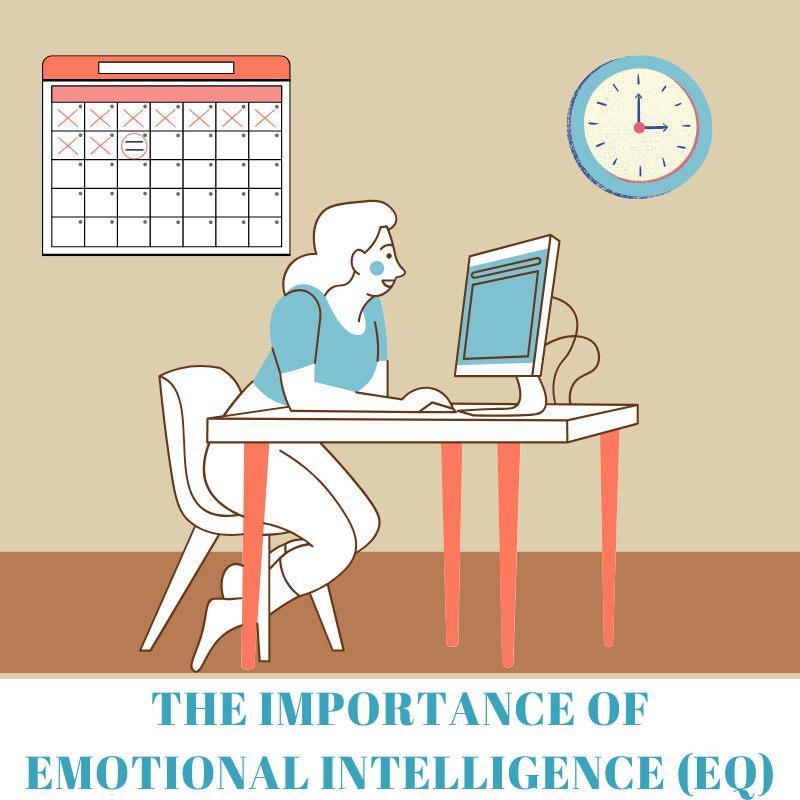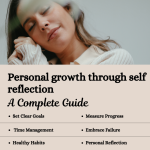Emotional intelligence (EQ) is more than just a buzzword it’s a skill set that can transform the way you think, feel, and interact with others. While IQ might get you through exams, EQ helps you navigate the challenges of everyday life, build strong relationships, and manage stress and anxiety effectively.
In this guide, you’ll learn how to develop emotional intelligence in daily life through simple, science-backed strategies that can be practiced at home, at work, and in social situations.
What is Emotional Intelligence (EQ)?
Emotional intelligence is the ability to recognize, understand, and manage your own emotions while also understanding and influencing the emotions of others.
It involves four core components:
- Self-awareness – Recognizing your emotions and their effects
- Self-management – Controlling impulsive behaviors and adapting to change
- Social awareness – Understanding others’ emotions and perspectives
- Relationship management – Building healthy, productive relationships
EQ isn’t something you’re born with it’s a skill you can develop with daily practice.
The Importance of Emotional Intelligence (EQ)

Emotional intelligence impacts nearly every aspect of life:
- Better Relationships – Stronger connections built on trust and empathy
- Career Growth – Effective leadership, teamwork, and conflict resolution
- Mental Health – Reduced anxiety, better stress management, and improved resilience
When you focus on how to develop emotional intelligence in daily life, you’re not just improving your communication, you’re boosting your overall well-being.
How to Develop Emotional Intelligence in Daily Life
Building EQ isn’t about overnight transformation. It’s about incorporating small, consistent habits that sharpen your emotional skills over time.
The 4 Key Skills to Emotional Intelligence
Skill 1: Self-Management to Build EQ
Self-management means staying in control of your emotions, especially in high-pressure situations.
Daily practices:
- Use breathing techniques to manage stress before meetings or important conversations
- Create a morning routine that includes a few minutes of mindfulness
- Pause before reacting to emotional triggers
Skill 2: Self-Awareness for EQ
Self-awareness is knowing your emotional patterns and understanding how they influence your behavior.
How to improve:
- Keep an emotion journal write down your feelings and triggers each day
- Check in with yourself during stressful moments: “What am I feeling right now, and why?”
- Notice your body’s signals like a racing heart or tense shoulders before they escalate
Skill 3: Social Awareness for EQ
Social awareness helps you pick up on emotional cues and respond appropriately.
Simple ways to practice daily:
- Listen more than you speak in conversations
- Observe non-verbal signals like tone of voice and body language
- Show empathy by acknowledging others’ feelings (“I can see this is really important to you”)
Skill 4: Relationship Management for EQ
Strong relationships are built on trust, respect, and mutual understanding.
Action steps:
- Practice active listening repeat back what you’ve heard to confirm understanding
- Address conflicts calmly instead of avoiding them
- Celebrate others’ successes to strengthen bonds
Additional Daily Life Practices to Boost EQ
Beyond the four key skills, here are extra habits to help you develop emotional intelligence naturally:
- Practice gratitude – List three things you’re thankful for each day
- Start clean eating on a budget – Nutrition affects mood and mental clarity, which influence emotional regulation
- Incorporate yoga or walking – Physical activity helps reduce stress and increase emotional stability
- Use mindfulness breaks – Take two minutes every hour to refocus your mind
Common Mistakes to Avoid When Developing EQ
While learning how to develop emotional intelligence in daily life, watch out for these pitfalls:
- Suppressing emotions – It’s healthier to acknowledge and process them
- Assuming you understand others – Always ask questions before drawing conclusions
- Reacting instead of responding – Slow down before making decisions in emotional situations
Measuring Your Progress
To track your growth:
- Use EQ assessment tools like the Emotional Quotient Inventory (EQ-i)
- Journal examples of moments where you handled situations better than before
- Ask trusted friends or colleagues for feedback on your communication and empathy
Final Thoughts
Learning how to develop emotional intelligence in daily life isn’t just about becoming “nicer” or more agreeable, it’s about gaining the skills to handle emotions with confidence, build stronger connections, and create a more balanced life.
Start small: choose one new EQ habit to practice today. Over time, these daily actions will transform your self-awareness, relationships, and emotional resilience.
FAQs
1. What are simple ways to develop emotional intelligence?
Some simple ways include practicing mindfulness, keeping an emotion journal, listening actively, showing empathy, and managing stress through breathing or exercise.
2. How can I improve emotional intelligence at work?
At work, you can improve EQ by actively listening in meetings, staying calm under pressure, resolving conflicts respectfully, and being open to feedback from colleagues.
3. Can emotional intelligence be learned at any age?
Yes. Emotional intelligence is a skill that can be developed at any age through consistent self-reflection, empathy practice, and relationship-building habits.
4. How does mindfulness help emotional intelligence?
Mindfulness improves EQ by helping you recognize emotions in the moment, pause before reacting, and respond thoughtfully rather than impulsively.
5. What daily habits increase emotional intelligence?
Daily habits such as gratitude journaling, clean eating, yoga or walking, mindful breathing, and active listening can steadily improve your EQ over time.

